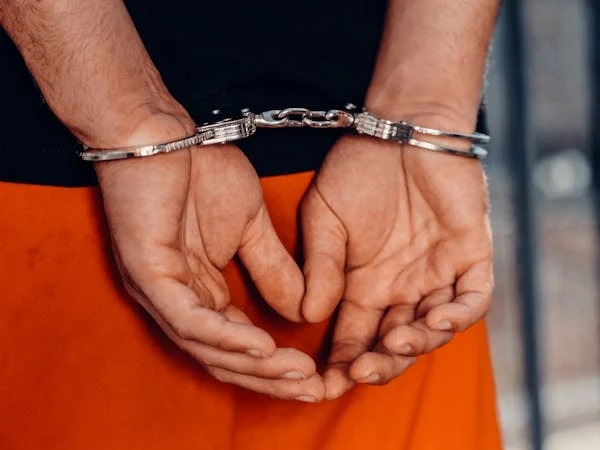South Africa: Military Courts should be allowed to operate independently and without influence from the executive
The International Commission of Jurists (ICJ), represented by the Legal Resources Centre (LRC), has intervened as an amicus curiae (friend of the court) in the case Lieutenant Colonel K.B O’Brien v. the Minister of Defence and Military Veterans (and others), due to be heard by the Constitutional Court of South Africa on 8 August 2024. The case concerns judicial independence within the military courts in South Africa, which ICJ submits is inadequately protected, with a particularly negative effect on such courts’ ability to secure the rights of survivors of gender-based violence at the hands of the South African military.
In this case, the applicant challenges the constitutionality of the provisions of the Military Discipline Supplementary Measures Act No. 16 of 1999, which allows the Minister of Defence and Military Veterans to appoint or remove military judges without the involvement or oversight of any independent body. It also seeks to challenge section 15 of the Military Discipline Supplementary Measures Act as it permits the Minister and the Adjutant General to make renewal assignments of military judges, for short periods, at their sole discretion, and without any objective criteria. Additionally, the applicant requests the Court to assess the constitutionality of sections 101 and 102 of the Defence Act No. 42 of 2002 in as much as it empowers members of the executive to appoint boards of inquiry, staffed by non-judicial officers, to investigate military judges, their judgments, and the conduct of their cases.
The ICJ has successfully petitioned the Court to allow it to adduce evidence of a government-issued report documenting the extent of harm by the South African military in respect of sexual harassment, sexual exploitation, sexual abuse, and sexual offenses. Kaajal Ramjathan-Keogh, ICJ’s Africa Director states that “[t]he power granted to the Minister to remove military judges, without oversight, is antithetical to the independence of military courts and judges. It amounts to the management and control of military courts by the executive. As the government itself has acknowledged, there is a serious problem with gender-based violence perpetrated within and at the hands of the South African military. The inadequate independence of military courts therefore significantly reduces the avenues for accountability for survivors of abuse.”
In its written submission, the ICJ connects the inadequate protection of judicial independence with the potential failures of the military courts to ensure accountability for survivors of such abuses within and at the hands of the South African National Defence Force.
In summary, the ICJ’s submissions raise the following key points:
International law and standards applicable to South Africa’s human rights obligations in respect of the independence of courts apply to military tribunals.
Sections 15 and 17 of the Military Discipline Supplementary Measures Act 16 of 1999, which grant the Minister of Defense and Military Veterans the discretionary power to appoint military judges on a temporary basis or remove them without any oversight, violate the principles of independence of judicial bodies from the executive branch of government and therefore falls short of South Africa’s obligations in terms of international law.
The investigation of military judges and/or revision of their judicial decisions through a board of inquiry, under sections 101 and 102 of the Defence Act No. 42 of 2002, is a clear violation of the principles of independence of judicial independence binding on South Africa in terms of international law.
One of the many consequences of South Africa’s failure to secure the independence of military courts is a failure to ensure accountability for victims and survivors of sexual assault perpetrated by members of the Defence Force. This, therefore, also constitutes a failure to comply with South Africa’s international obligations to combat all forms of gender-based violence.
Under key international law treaties like the African Charter on Human and People’s Rights and the International Covenant on Civil and Political Rights, South Africa is required to ensure the institutional independence of military courts from the executive, secure the tenure of military judges, and prevent the review of judicial decisions by a third party other than courts. Additionally, for as long as military courts retain jurisdiction over cases of sexual offenses, South Africa has a further obligation to ensure that the independence of military courts is adequately guaranteed.
Ramjathan-Keogh argues that “[a]ll criminal cases should, consistently with international law and standards, preferably be heard by civil courts and not military tribunals. However, where jurisdiction is given to military courts, as is the case in South Africa, their full independence from the executive is vital to the protection of human rights and the rule of law,”
Background to the case
South Africa has a system of military courts where the Minister of Defence and Military Veterans has the exclusive authority to appoint or remove judges who preside over the courts, which consists of the Court of Military Appeals, the Court of a Senior Military Judge, and the Court of a Military Judge. Military courts have criminal jurisdiction over members of the South African National Defence Force that are accused of offenses including treason, murder, rape, or homicide.
Mr. O’Brien served as a military judge for fixed periods in 2013, 2014, and 2016. During his tenure, he expressed his concerns on record, in the matters he presided over, about the manner of appointing judges to military courts, the constitutionality of the process, and the impact on the independence of military courts and fair trial rights. In 2014, he received an admonition from his superiors for his actions. Later, in 2016, the Minister of Defence and Military Veterans convened a board of inquiry to investigate all matters heard by Mr. O’Brien. Eventually, the Minister of Defence and others brought an application reviewing Mr. O’Brien’s judgments and orders. In response to this application, Mr. O’Brien launched a counter-application, challenging the constitutionality of the provisions as discussed above.
The High Court of South Africa (Gauteng Division, Pretoria) and the Supreme Court of Appeal previously rejected Mr O’Brien’s counter-application and appeal challenging the constitutionality of the Minister of Defence and Military Veterans’ authority.
Under key international law treaties like the African Charter on Human and People’s Rights and the International Covenant on Civil and Political Rights, South Africa is required to ensure the institutional independence of military courts from the executive, secure the tenure of military judges, and prevent the review of judicial decisions by a third party other than courts. Additionally, for as long as military courts retain jurisdiction over cases of sexual offenses, South Africa has a further obligation to ensure that the independence of military courts is adequately guaranteed.
Resources
South Africa: High Court, Gauteng Division, Pretoria, Minister of Defense and Military Veterans and Others v O’Brien N.O and Others.
South Africa: Supreme Court of Appeal, Lieutenant Colonel KB O’Brien NO v The Minister of Defense and Military Veterans and Others.
South Africa, Military Discipline Supplementary Measures Act 16 of 1999.
South Africa, Defence Act No. 42 of 2002.
The Constitution of South Africa.
ICJ, International Principles on the Independence and Accountability of Judges, Lawyers and Prosecutors, Practitioners’ Guide No. 1.
Contact
Kaajal Ramjathan-Keogh, ICJ Africa Director
Cecile van Schalkwyk, Attorney at the LRC





